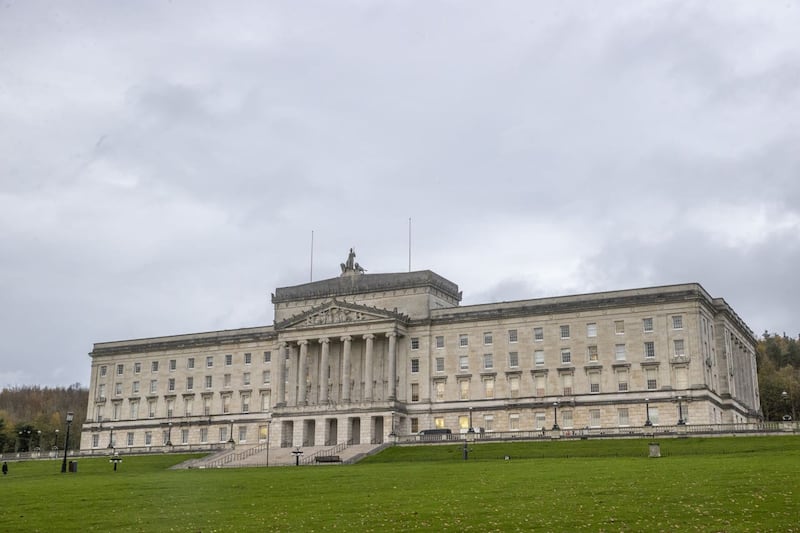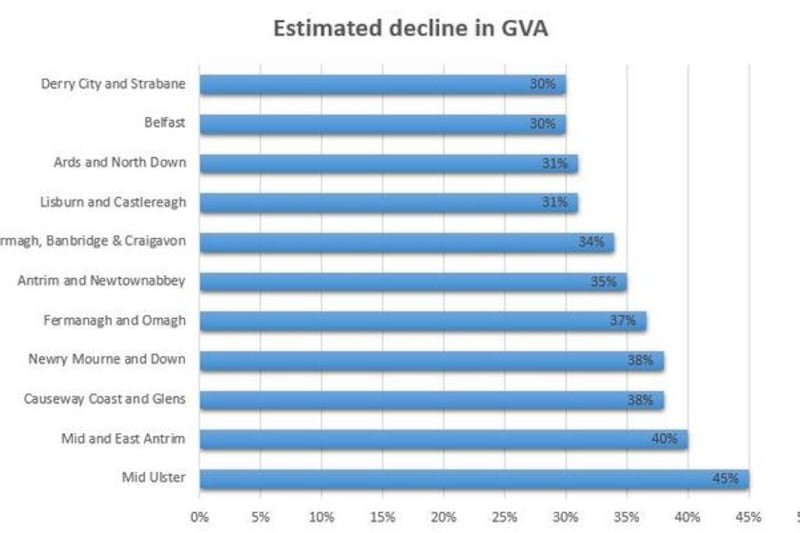The absence of a functioning government in Northern Ireland means that it is the only part of the UK to have lacked a “proper policy response” to the cost-of-living crisis, a think tank has said.
The new report by the Centre for Progressive Policy has examined the impact of soaring costs across the region, as well as Scotland and Wales.
It pointed out that Northern Ireland has faced “deepening hardship” with record numbers receiving universal credit as well as housing support.
The report said: “The absence of a functioning government in Northern Ireland means that it is the only part of the UK to have lacked a proper policy response to the cost-of-living crisis.
“The lack of political representation in the UK Government has further contributed to this challenge, masking the potential severity of the crisis in Northern Ireland from dominant political and media narratives.
“Few in and around Westminster have been aware that the energy price cap has never applied to Northern Ireland, while the country’s huge dependency on home heating oil has also gone largely unnoticed.
“Many will also be unaware that because of this, Northern Ireland’s principal winter crisis was arguably not over the winter of 2022-23 like Great Britain, but the preceding year, 2021-2022, as oil prices began climbing significantly with zero financial support provided to households to absorb costs.”
The Stormont powersharing institutions have been dormant for more than 16 months due to a boycott by the DUP in protest at post-Brexit trading arrangements.
The Centre for Progressive Policy report continued: “Evidence of deepening hardship taking place on a mass scale can be seen in the record levels of households now receiving universal credit (UC), which has more than doubled since 2020 due to pressures from rising bills and prices.
“This hardship is also seen through the rapidly increasing number of households receiving support for housing costs, with the total number having tripled since the end of 2019, now encompassing roughly one in six households, and notably, one in four within the private rented sector.
“The lack of resilience to rising prices in Northern Ireland has been reinforced by a lack of governance to help build household and community resilience to economic shocks.

“Northern Ireland’s Fuel Poverty Strategy is over a decade old, having been published in 2011, while local area fuel poverty statistics have not been published since 2016.
“Local leaders fighting this crisis on the ground have often had to do so with few resources, little strategic oversight and limited data-led insight about the situation as it confronts them.”
The report noted the fact that 68% of households in Northern Ireland are reliant on home heating oil, with the number rising to 82% in rural areas.
Read more:
How do road fuel prices compare in Northern Ireland v the Republic?
It added: “The market for home heating oil is highly unregulated and is unprotected from any price mechanisms.
“Although every household in Northern Ireland received an additional £200 of support given their high dependency on heating oil, this came months after prices for heating oil peaked.
“Northern Ireland’s significant dependency on home heating oil and the lack of regulation of the market meant that most households in Northern Ireland had already endured months of drastic and persistent price increases.
“With the Northern Ireland Assembly not sitting, and a seeming lack of awareness or real interest in mainstream UK policy circles about the situation in Northern Ireland, its citizens’ experience of the energy crisis has gone largely unnoticed outside of its borders.
“While heating oil prices have fallen to a level far closer to what they were prior to the energy crisis, the continued lack of regulation in the market, or longer-term plans to make Northern Ireland more energy secure, means that it remains uniquely vulnerable to future price shocks.”
The think tank called on the devolved governments of Wales, Scotland and Northern Ireland to provide more discretionary funding for councils, similar to the Household Support Fund available to English local authorities, to support their residents.
Report author Ross Mudie said: “Rising living costs are adding pressure to virtually all households in the devolved nations, but our analysis reveals significantly different pressures in different places within them.
“Households in large cities across the three nations are more likely to face pressure from high housing costs, both private renters and those with recent mortgages being particularly at risk.
“For remote and rural communities, fuel poverty is a significant threat, particularly for those households in Scotland and Northern Ireland that rely on heating fuel.”






